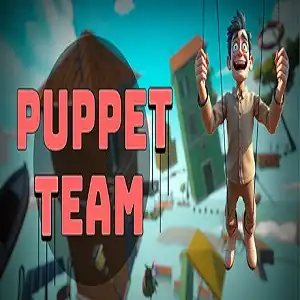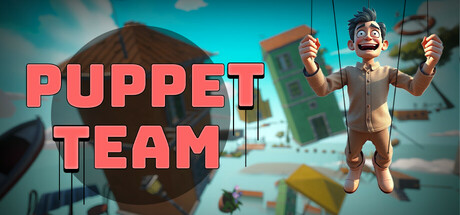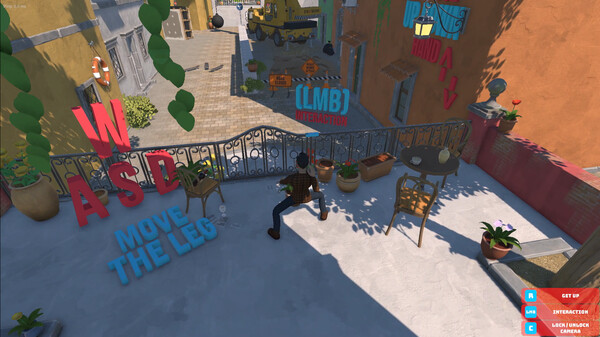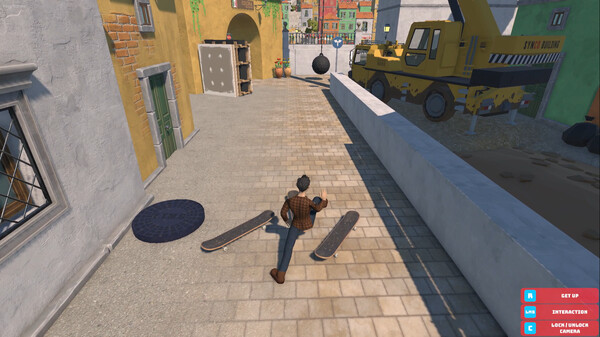Puppet Team puts a hilarious twist on cooperation: two players share control over a single puppet and must coordinate perfectly (or fail spectacularly). Released in 2025 by Editmode, this indie title emphasizes chaos, laughter, and absurd teamwork over deep mechanics. In this review, we break down its gameplay, strengths and weaknesses, user reception, and how it stacks up against other coop experiences.
Puppet Team Review — A Chaotic Co-op Adventure
Introduction
Co-op games thrive when players work together—but what if coordination is the challenge itself? That’s the core of Puppet Team. Launched on Steam in May 2025, it challenges two players to operate one puppet through obstacle-filled levels, comedic hazards, and timed missions. The appeal lies in the pandemonium of missteps and the joy when you finally sync up. But is it just a gimmick, or does it have enough substance to stand on its own? Let’s find out.
Basic Information
| Attribute | Details |
|---|---|
| Title | Puppet Team |
| Developer / Publisher | Editmode |
| Release Date | May 6, 2025 |
| Price | ~$4.99 USD (as of release) |
| Platforms | PC (Steam) |
| Tags / Genres | Casual, Indie, Simulation, Co-op |
| Languages Supported | Multiple (Interface & Subtitles) |
| Peak Concurrent Players | 140 (on May 7, 2025) |
| Current Active Players | Low (4–7 live) |
| Steam Reviews | Mixed (≈ 59% positive of 87 reviews) |
From this overview, we see Puppet Team is a small indie experience, low-budget, built around a quirky central mechanic. The mixed user reception suggests its appeal may depend heavily on party dynamics and tolerance for chaotic gameplay.
Gameplay & Mechanics
At its core, Puppet Team’s gameplay is simple but punishing: two players control different parts (limbs, movement) of the same puppet. Success depends entirely on communication and timing.
-
Shared control system: Each player operates separate limbs or movement axes, forcing real coordination.
-
Physics-driven movement: The puppet reacts to collisions, gravity, and momentum, increasing the unpredictability of movement.
-
Obstacle courses & hazards: Levels include moving platforms, collapsing bridges, spinning traps, and environmental hazards that punish lack of coordination.
-
Co-op or team competition: You can play with a friend to complete missions or compete versus other teams for fastest time.
-
No leveling or character customization: The game keeps things pure—no upgrades, loot, or skill trees. Focus remains entirely on the co-op puzzle.
Because Puppet Team doesn’t rely on narrative or progression systems, the longevity depends on how fun its levels remain across repeated plays and how creative they get with challenges.
Pros & Cons
Pros
-
Unique co-op mechanic that sets it apart from standard coop platformers
-
Simple to understand, easy to pick up for casual sessions
-
Strong “laugh-at-your-own-failures” appeal for you and your friend
-
Modest price lowers the barrier for trying it
Cons
-
Can feel repetitive after a while—lack of depth or variation in later levels
-
Requires a very cooperative partner; poor coordination leads to frustration
-
Mixed performance: physics unpredictability sometimes feels unfair
-
Small player base and limited post-launch content
-
Reviews are mixed, indicating that it won’t appeal to all audiences
User Reviews & Community Feedback
User feedback reflects the polarizing nature of Puppet Team. Some highlight the novelty and shared laughter, while others criticize inconsistency and frustration.
-
Positive voices:
“I had so much fun.” — A user points out that for the price, the game delivers laughs.
-
Critical voices:
“2 players controlling 1 character is impossible” — One reviewer (via video commentary) complained about the difficulty of synchronization.
“Servers often buffer or don’t load” — though more mentioned in discussion threads about stability.
On Steam forums, users also ask about controller support, level issues (getting stuck in maps), and saving mechanics.
The divided reception suggests that Puppet Team is best enjoyed in a lighthearted mood with a partner who tolerates chaos.
Comparison with Similar Games
To understand where Puppet Team fits, let’s compare it to a few cooperative or chaotic-party games:
| Game | Similarity | Difference / Advantage of Puppet Team | Weakness vs Comparison |
|---|---|---|---|
| Moving Out | Cooperative, physics-based chaos | More focused on pure limb control and absurdity | Puppet Team is simpler, with less variety in tasks |
| Lovers in a Dangerous Spacetime | Two-person coop emphasis | Puppet Team pushes coordination to extremes via single puppet control | Lacks storytelling and progression depth |
| Overcooked / Tools Up! | Party-style coop challenges | Puppet Team’s mechanic is more minimalistic and centered around body coordination | Fewer varied mechanics and gameplay types |
| Human: Fall Flat | Physics puzzles and slapstick fails | Puppet Team adds the twist of multi-player control over one character | Less free exploration, more constraint to linear levels |
Compared to standard co-op titles, Puppet Team stands out by reducing responsibilities to just movement and limbs. It’s more of a party game inside a core concept than a full-featured coop adventure.
Final Verdict
Puppet Team is a quirky, experimental coop game that thrives on imperfect coordination and shared absurdity. If you and a friend enjoy playful frustration, glitchy physics, and spontaneous comedy, this $5 indie title delivers memorable moments. But don’t expect a deep campaign or sustained replay value unless the levels evolve or new content is added.
For best experience: play it with someone who laughs at failure, communicate well, and treat it as a party side-game rather than a serious adventure. It’s not for everyone, but for its niche, Puppet Team is a fun experiment worth checking out.
User Reviews















